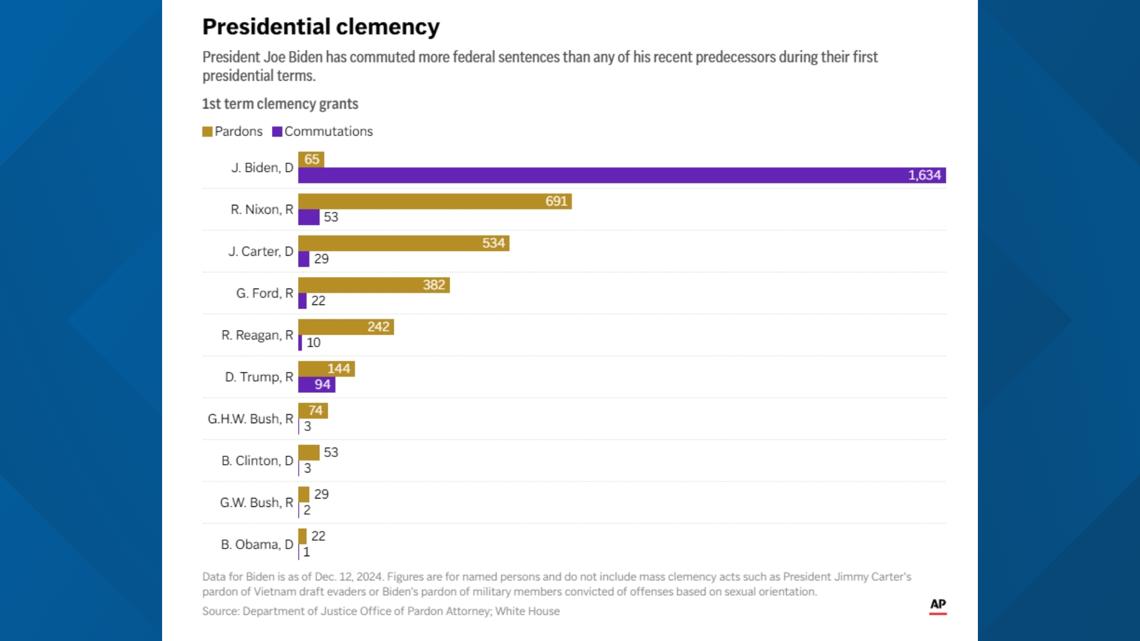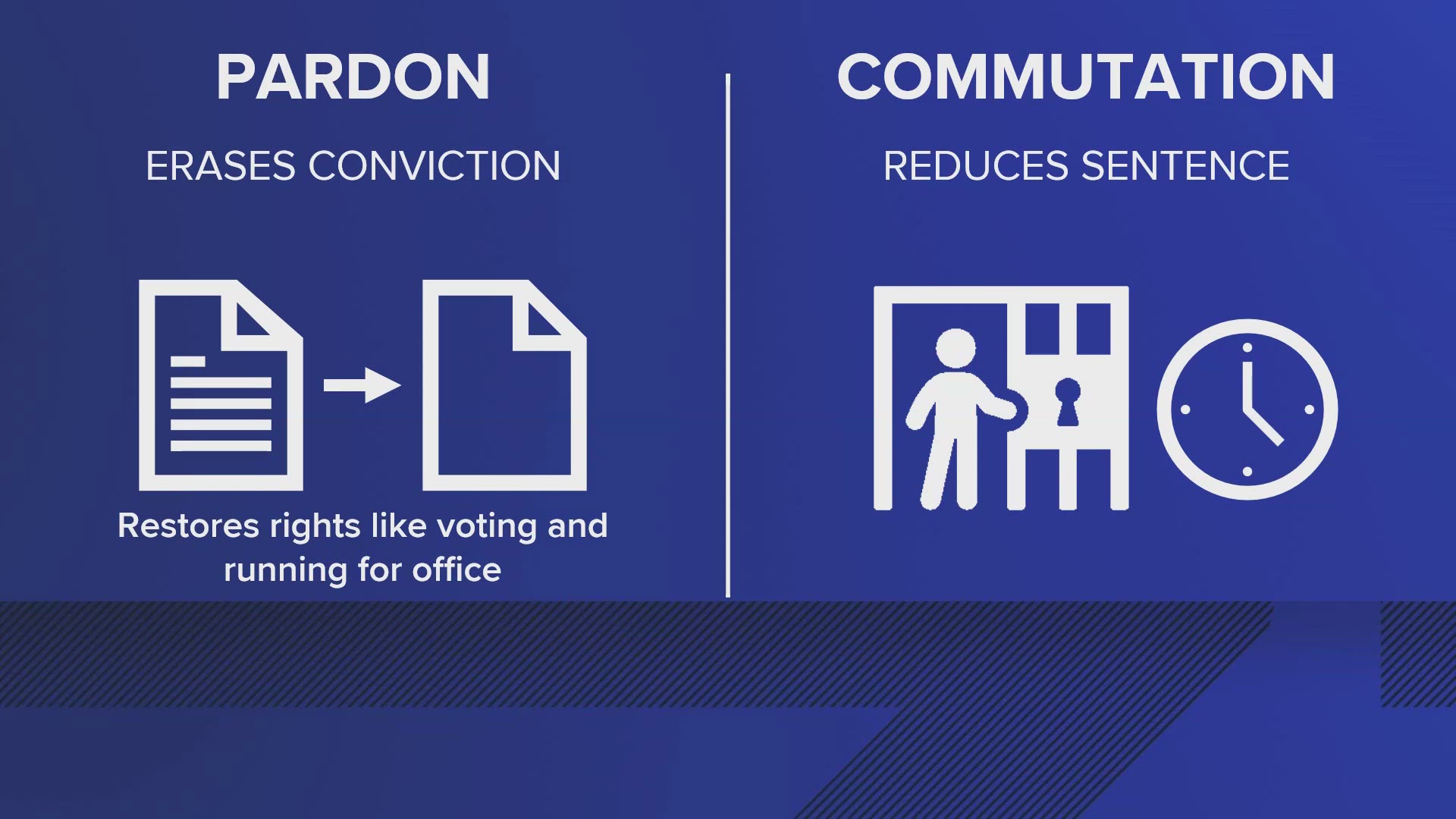WASHINGTON — On Thursday, President Joe Biden was responsible for the biggest single-day act of clemency in U.S. history, commuting 1,500 sentences and issuing 39 pardons, including three for people from the DMV area.
But what's the difference between a pardon and a commutation?
The difference between a pardon and a commutation:
A commutation can change someone's prison sentence, but unlike a pardon, a commutation does wipe out a conviction. Someone with a presidential commutation still has a conviction on their record and can be stripped of the right to vote, and lose liberties like running for office and working certain jobs, depending on local laws and company policies.
For example, in Virginia, any person with a felony record is typically not allowed to vote.
Rapper Kodak Black was granted a commutation in 2021 on the final day of President-elect Donald Trump's first term in office. This act of clemency meant that the Florida rapper, whose government name is Bill Kapri, would not have to serve out the remainder of his nearly four-year prison sentence for falsifying gun documents. Kodak Black's commutation, however, did not mean that his conviction had officially been forgiven.
Pardons are typically given out to people after they have served a prison sentence, which was the case for the three DMV men Biden pardoned on Thursday.
Although there are examples such as President Biden pardoning his son, Hunter, for federal gun and tax convictions, where the president will pardon someone after they were convicted of a crime but before serving time. There are also examples like President Gerald Ford pardoning his predecessor Richard Nixon, where a person can be pardoned without having been charged with a crime.
This privilege of the president comes directly from Article II of the U.S. Constitution.
"He shall have power to grant reprieves and pardons for offenses against the United States, except in cases of impeachment," the Constitution reads.
Governors can pardon, too:
Similarly, governors may give pardons for state crimes.
In June, Democratic Gov. Wes Moore of Maryland pardoned 175,000 people who had misdemeanor marijuana charges. In Sept. 2023, Republican Gov. Youngkin pardoned a Loudoun County father who was arrested for obstruction of justice and disorderly conduct while calling for answers at a school board meeting after his 15-year-old daughter was sexually assaulted in a school bathroom.
How Biden's pardons compare with his predecessors:
Biden has issued the most acts of clemency of any U.S. president, with 65 total pardons and 1,634 commutations as of Dec. 12. Comparatively, during Donald Trump's first term in office, Trump gave 144 pardons and 94 commutations. Barack Obama would go on to issue more pardons and commutations during his second term, but during his first four years in office, he only issued one commutation and 22 pardons.


The first presidential pardon:
George Washington granted the first pardons in 1794 after the end of the Whiskey Rebellion, a violent series of protests by Pennsylvania farmers against Washington's tax on whiskey. The whiskey tax was one of the first taxes implemented by the United States government after the American Revolution.
Only two men, Philip Wigle and John Mitchell, were ever convicted in the three-year-long uprising. Wigle had apparently beat up and burned the house of a tax collector, while Mitchell convinced another man to rob U.S. mail. Both were sentenced to be hanged for treason before Washington's pardon spared the two.

